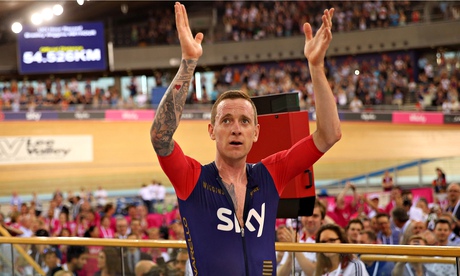
Bradley Wiggins compared his latest feat of athleticism to childbirth yesterday. After breaking the world hour distance record, one of the toughest challenges in cycling, he said: “That’s the closest I will come to knowing what it’s like to have a baby.” On behalf of mothers everywhere, Sir Bradley: I hope you are right. Let me know if that changes. I will commit here and now to being your birthing advocate.
His comment reinforces our cultural belief that childbirth is an extraordinary – and extraordinarily painful – physical feat, on a par with record-breaking athletic activity. In some ways, it is. In terms of pain, it feels like the closest you will come to dying without actually dying. Although, like athletic activities occasionally, in some cases it will actually cause you to die.
But it is also – unlike record-breaking attempts – the most everyday and ordinary of human activities, and something every single person on the planet has experienced on the day they arrived here.
Is the pain comparable to Wiggins’s hour of frenzied hamster-wheeling? We cannot know. But we do know that childbirth is about more than intensity. It’s about duration. If Wiggins was still going after 24 hours or more – certainly not unheard of when giving birth, especially in a first labour – then he would easily have been calling for an epidural – or an axe.
His comment could certainly be seen as controversial. For a man to claim he has experienced anything remotely close to the effort, pain and achievement of producing a human out of a tender, oft maligned orifice, is often considered offensive and laughable.
In the new Sky Arts version of the Joe Penhall play Birthday, about a world where men can give birth thanks to artificial wombs, the midwife says to Ed, Stephen Mangan’s character who is in labour and making a terrible fuss: “It’s very strange for the men. They take it all so seriously.” Ed’s wife, Lisa – who nearly died in childbirth, hence making her husband do it this time – hisses: “What about any of this do you think feels normal for a woman?”
However, as someone who has given birth to three babies - all on gas and air, one born in my kitchen next to the dishwasher, and two taking way less than the hour in which Wiggins covered 54.526 kilometres – I think the comment can be taken as a massive compliment. I asked for the midwife to call a vet to have me put down 20 minutes into the birth of my third child. She said she would do it if the baby wasn’t born within the hour. He came 20 minutes later. I am now thrilled to know that having a baby means I’ve come close to feeling what it’s like to break the world hour distance record for cycling. Wiggins and I now share this sisterly bond.
So Wiggins took a risk here. What he said could be construed as alienating and patronising. But I suspect he meant the opposite, a kind of hat tip to his wife, with whom he has two children. His claim belies a very sweet kind of “me too” pleading, a sort of wishful thinking that I suspect many of the men who make this comparison feel: “I’ve done some amazing things. But I have never actually given birth. I would like to be able to do that.” He is rightly expressing awe. I’m not sure childbirth – an involuntary activity you can’t really train for – beats a cycling record or vice versa. But either way we’re all winners here. Where do I apply for the medal?
• Viv Groskop’s show Say Sorry to the Lady is at the Edinburgh Fringe from 5 August

